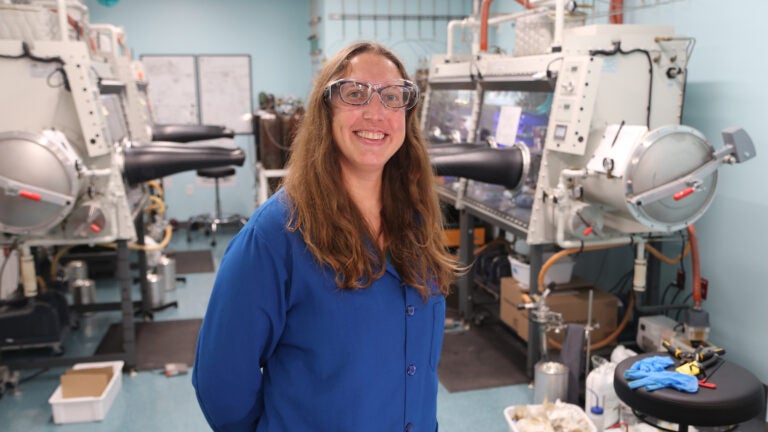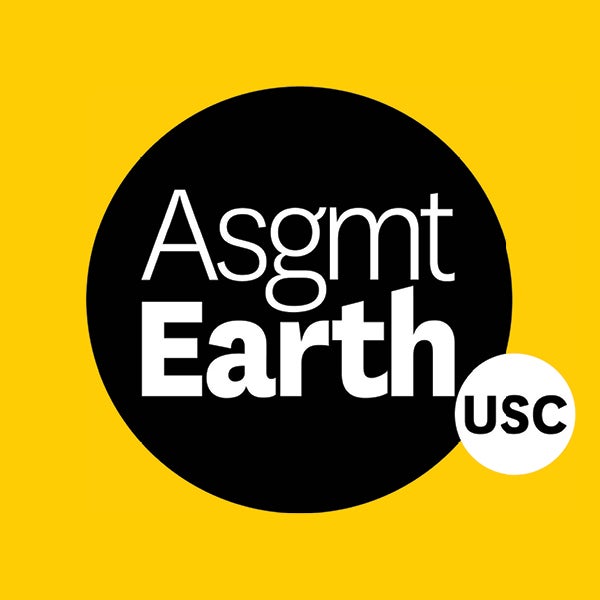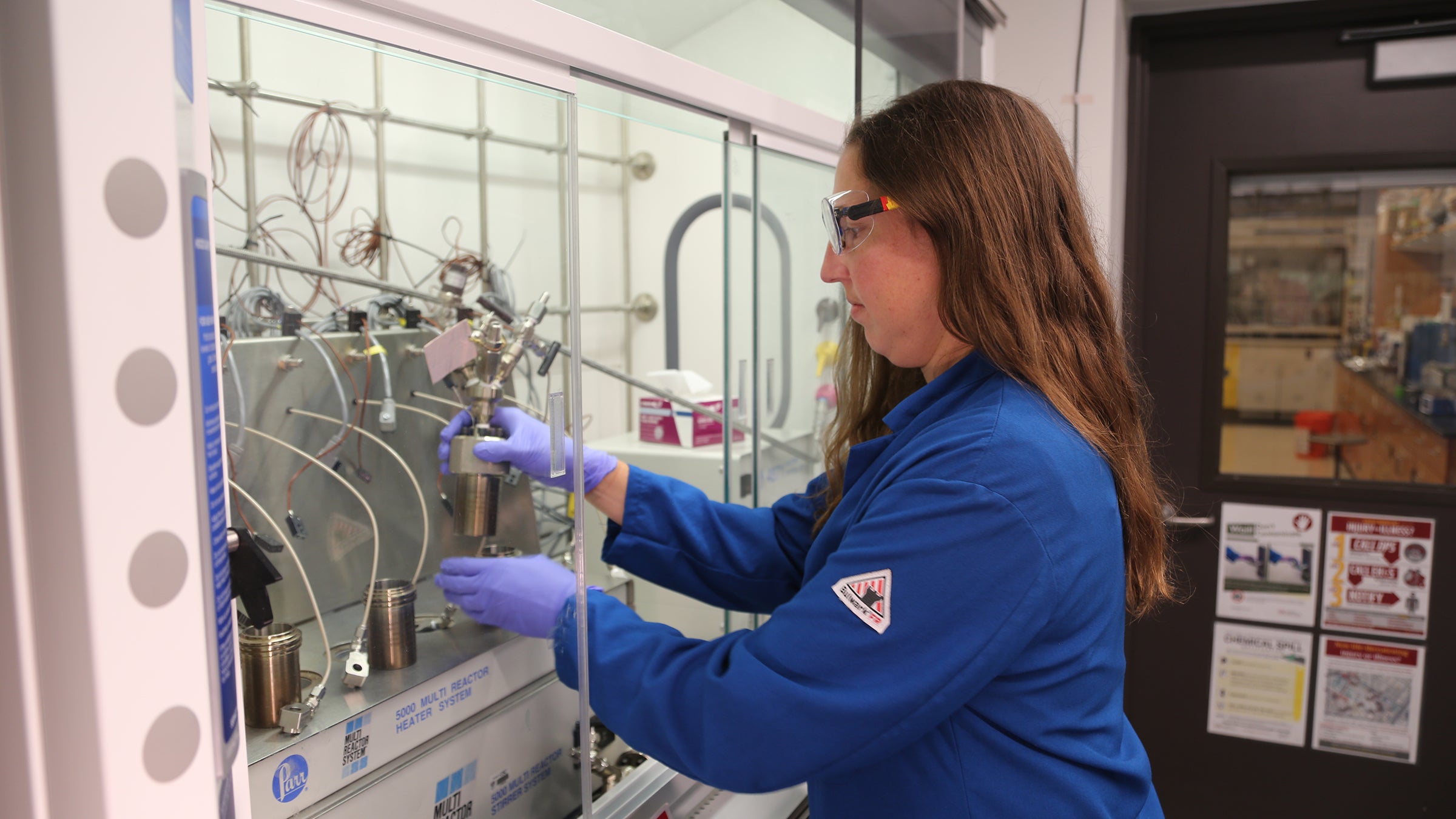
Megan Fieser is Gabilan Assistant Professor of Chemistry at the USC Dornsife College of Letters, Arts and Sciences. (USC Photo/Stephen Gee)
Finding practical solutions to plastic problems: Q&A with Megan Fieser
GREEN WEEK: Fieser, the Gabilan Assistant Professor of Chemistry at USC Dornsife, explores ways in which degradable plastics could be used as a replacement for commercial nondegradable plastics.
Megan Fieser is focused on finding a solution to one of the most pressing sustainability problems: what to do about all the plastic accumulating in our environment.

Fieser, who is Gabilan Assistant Professor of Chemistry at the USC Dornsife College of Letters, Arts and Sciences, founded the Fieser Lab in 2018 to explore ways in which degradable plastics could be used as a replacement for commercial nondegradable plastics or how current products can be recycled or upcycled into commercially useful chemicals.
The following year, Fieser began organizing regular local beach cleanups with the dual purpose of removing plastic waste and tracking the types of plastic that wash up on the shores.
The group has since collected 225,505 plastic items from Southern California beaches. The next beach cleanup will be held Sept. 29 at Alamitos Beach in Long Beach, and Fieser says everyone is welcome.
She recently sat down with USC News to discuss her journey as a scientist on a mission to help the planet by reusing and recycling plastics.
How did the Fieser Lab get started?
Fieser: I have wanted to be a professor in chemistry since I was 16. However, it took many years for me to identify the research direction I wanted to take in my independent career. Using my education background, I believed that working in plastic sustainability would be the best way for my students to learn challenging science, communicate with the general public and learn how industrial chemistry works. With these skills and expertise in inorganic, polymer and sustainable chemistry, I believe that I set my students up for success in the job market, where they will have many options for directions they can take.
What problem are you trying to address?
Fieser: Right now, the main problem we are addressing is the growing accumulation of plastics. In some cases, we really need plastic items to benefit modern society. Therefore, we strive to create degradable and sustainable polymers that can replace nondegradable polymers in our Team POL Research Thrust. The challenge is to ensure these polymers have the right properties for the target application and can be made by inexpensive means.

On the other hand, we are trying to repurpose waste nondegradable polymers into useful chemicals and materials that can have a second life … This is especially important for polymers that are difficult to replace with other products. We specialize in the repurposing of PVC, which is a critical polymer in medical and construction applications, yet has a harmful end of life. Whether it ends up in a landfill, is recycled or is burned for energy recovery, PVC produces harmful chemicals (such as hydrochloric acid and dioxins) and can leach out toxic additives (such as heavy metals and plasticizers) into the environment.
What is your approach to solving the problem, and how has it evolved?
Fieser: My group strives to develop efficient and inexpensive catalytic methods to make new polymers (most often known to the public as plastics) and repurpose existing polymers. We make use of many elements on the periodic table, depending on the project. When I started my career, I was thinking about complex catalyst design, as that was what I was used to from my background. However, through careful control reactions, we have been able to identify simpler solutions that we originally expected. This makes our work more appealing to eventual commercialization.
What would you consider a breakthrough?
Fieser: I think a very general breakthrough in this field would be to identify a scalable, cost-effective method for either of our research thrusts that indicate commercial viability. As an educator, a breakthrough for me would be a student using their experience in their future career to make a difference in plastic sustainability at the industrial level!
What is next?
Fieser: We are constantly expanding projects and building projects. We expect to be working in plastic sustainability for many years, as there are so many challenges to address. Eventually, we hope to use polymer chemistry to address other challenges, such as drug delivery and nuclear waste remediation. We are always excited to engage with the public on how they can make good choices in their consumer behavior to make a difference as well.
How can students get involved?
Fieser: Students interested in research in the Fieser Lab can email fieser@usc.edu. We host at least three beach cleanups a year, with the next cleanup on Sept. 29. You can sign up on our outreach website.



